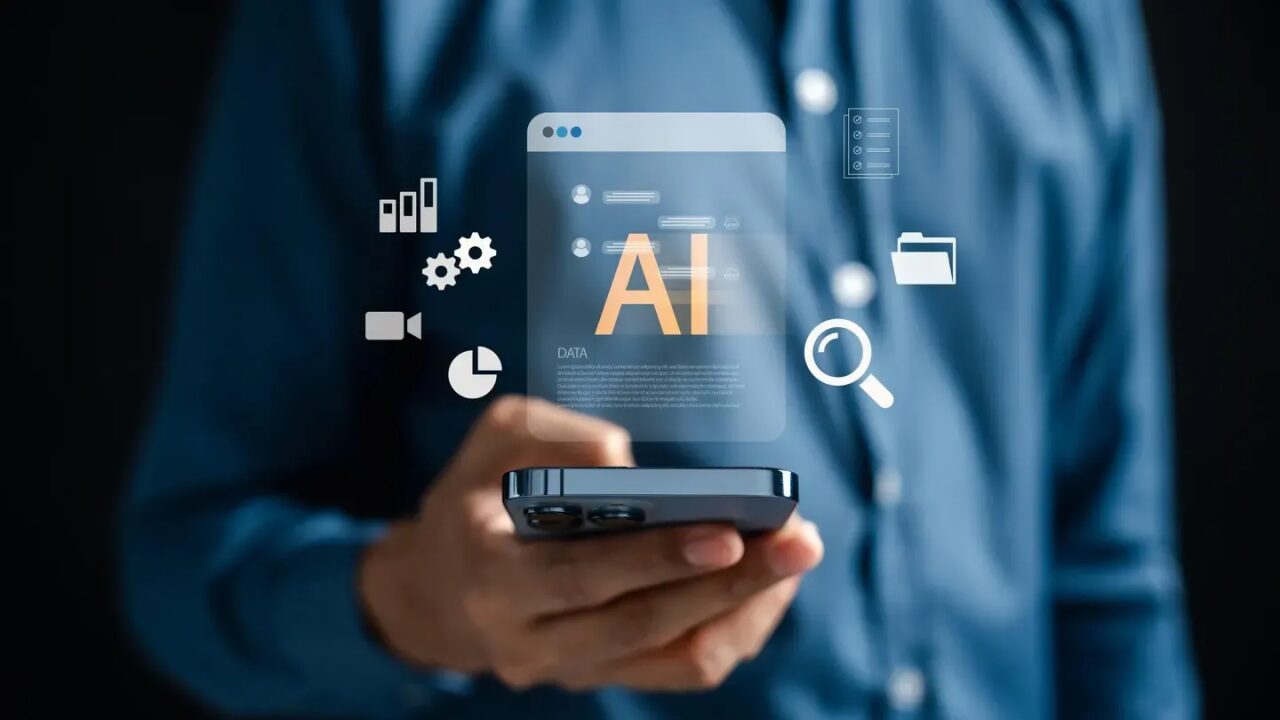Instead Of Destroying Jobs Artificial Intelligence (AI) Is Creating New Jobs In 4 Out Of 5 Companies
2 July 2021
AI will lead to humans losing their jobs and widespread redundancy – that’s the theory, anyway. However new research has suggested that firms which are investing in smart, automated and self-teaching systems are more likely to be creating jobs with it.
 Is Creating New Jobs In 4 Out Of 5 Companies.png)
Researchers at Capgemini surveyed 1,000 organisations which have deployed AI-based systems and found that four out of five of them have created more jobs. Additionally, two thirds of respondents said there have been no reduction in overall jobs due to AI.
Of course, it’s very early days – the AI that even leading-edge businesses are using today is likely to look pretty stupid compared to the technology which will be available in five years’ time. But all the signs are that those predicting the first wave of machine learning applications will be used to augment existing human workforces, rather than make them redundant, are so far on the money.
Other findings of the report are that AI is already having a significant bottom-line impact – three quarters of respondents were able to attribute a 10% or greater rise in sales as a result of their AI deployment.
Customer services is the area where most see it having a significant impact – with 73% saying they believe they can use it to increase customer satisfaction.
Capgemini’s head of strategic innovation Tom Ivory spoke to me about the findings, and told me “The key takeaway is the fact that AI could lead us into arguably one of the biggest social and economic revolutions the world has ever seen. Something that came close was in 1900 when the automobile, telecommunications, the aeroplane and mass electrification all came together at once, radically changing the world from the late 1800s to the 1920s.”
He went on to highlight the importance of “reskilling” as key to unlocking the power of transformative AI technology within an organisation.
“71% of organisations have proactively initiated reskilling employees with new skills to deal with the impact of AI”, he told me.
“The heart of reskilling is improving the way employees can leverage data to improve customer service, accelerate research and development and innovate. Eventually all companies will become digital organisations that harness the exponentially growing volume of data inside and outside of their companies.”
One of the survey respondents was UK-based insurance giant Prudential. Michael Natusch, their global head of AI, told me how AI is now considered a core business element.
“Instead of looking for ways to replace humans with AI, we are seeking the most fruitful complements,” he said.
This includes robotic call centre assistants. “Clearly, nobody wants to talk to a robot,” says Natusch.
“But if a robot answers a phone call on the second ring and provides the right information at the right moment in time, then there is value in this. Our call centre agents appreciate the collaboration with robots as they are now able to focus on harder problems that require their experience, creativity and empathy.”
One AI initiative involves flagging up customers who could be labelled as vulnerable people, and therefore in need of additional assistance. Another involves research into handwriting recognition which will be used to further automate aspects of underwriting and claims processing.
Other statistics showing that AI is currently creating jobs, rather than destroying them, comes from jobs website Indeed, which recently announced that there has been a five-fold increase in the number of AI jobs advertised in the UK, in the past three years.
However Indeed’s research also found that demand for data scientists and artificial intelligence experts outstripped supply, with 2.3 vacancies per qualified candidate.
This is despite the average salary for machine learning engineering jobs reaching £54,386 ($71,744) – close to twice the UK average salary.
Indeed economist, Mariano Mamertino, said “Employers in every sector are keen to utilise artificial intelligence and need workers with the right skills to fill these roles.
“Our data shows that competition for this shallow pool of candidates is fierce, with the numbers of available roles outstripping potential new hires.
“The AI sector is likely to keep growing as the potential for the widespread application of the technology, across different industries, becomes more clear. Investing in education and the right skills needed to propel the industry forward will be key to its growth.”
This serves as a hugely interesting snapshot of the how the AI revolution is unfolding right now. While things may be very different in the (not so distant) future, currently the need to hire people with the abilities and aptitude to work alongside intelligent machines is driving job growth upwards, rather than downwards.
Related Articles
7 Legal Tech Trends That Will Reshape Every Business in 2026
By now, “smart” versions exist of just about every home appliance, gadget and gizmos we can think of. However, manufacturers continue[...]
8 Skills You Need To Manage The New AI Agent Workforce
By now, “smart” versions exist of just about every home appliance, gadget and gizmos we can think of. However, manufacturers continue[...]
Should AI Have Free Speech?
By now, “smart” versions exist of just about every home appliance, gadget and gizmos we can think of. However, manufacturers continue[...]
5 Amazing AI Agent Use Cases That Will Transform Any Business In 2026
By now, “smart” versions exist of just about every home appliance, gadget and gizmos we can think of. However, manufacturers continue[...]
8 Smartphone Trends That Will Shape 2026
By now, “smart” versions exist of just about every home appliance, gadget and gizmos we can think of. However, manufacturers continue[...]
7 Media Trends That Will Redefine Entertainment In 2026
By now, “smart” versions exist of just about every home appliance, gadget and gizmos we can think of. However, manufacturers continue[...]
Sign up to Stay in Touch!
Bernard Marr is a world-renowned futurist, influencer and thought leader in the fields of business and technology, with a passion for using technology for the good of humanity.
He is a best-selling author of over 20 books, writes a regular column for Forbes and advises and coaches many of the world’s best-known organisations.
He has a combined following of 4 million people across his social media channels and newsletters and was ranked by LinkedIn as one of the top 5 business influencers in the world.
Bernard’s latest book is ‘Generative AI in Practice’.










Social Media